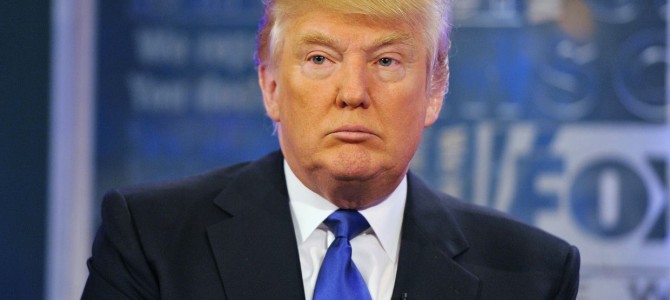Earlier this week, Donald Trump announced to the world that he planned to run for the U.S. presidency in 2016. He has not, however, officially informed anyone at the Federal Election Commission (FEC).
As of Friday afternoon, Trump is yet to file with the FEC any paperwork formalizing his candidacy, as you can see below via the screenshot from the FEC’s list of presidential candidate filings:

All told, 404 presidential candidates have filed these papers so far (yes, you read that number correctly). The most high-profile candidates to officially file with the FEC this week were former Rhode Island Sen. Lincoln Chafee and former Florida Gov. Jeb Bush. Bush’s filing on June 15 coincided with his public announcement on Monday that he would be running for the White House.
Federal election laws require all presidential candidates to file as such with the FEC within 15 days of becoming candidates for office. But what does it mean to “become a candidate for federal office?” According to the FEC, an individual becomes a candidate when:
1) The individual has received contributions aggregating in excess of $5,000 or made expenditures aggregating in excess of $5,000; or
2) The individual has given consent to another person to receive contributions or make expenditures on behalf of him or herself and that person has received contributions aggregating in excess of $5,000 or made expenditures aggregating in excess of $5,000
Ergo, a mere public pronouncement does not appear to automatically make one a presidential candidate. Instead, the filing requirement is triggered based on whether a certain amount of money has been raised or spent on behalf of that person’s candidacy. Has Trump reached either of those thresholds?
At this point, there’s no way to know how much money, if any, Donald Trump has raised for his alleged campaign. The better question is whether he has spent at least $5,000 promoting his candidacy. By all appearances, the answer to that would seem to be a resounding “yes”: big event at Trump tower, attendees who were paid $50 each to cheer him on, political aides and speechwriters galore, and so on.
In fact, the more important question in this case may not be whether he’s triggered the disclosure requirement due to his expenditures, but when he triggered it. The Washington Post reported back in February that Trump himself admitted to already hiring staff and paying an election attorney to support his presidential run:
In recent days, Trump said, he has hired staffers in key primary states, retained an election attorney and delayed signing on for another season as host of NBC’s “The Celebrity Apprentice” because of his political projects.
Other eventual candidates, such as Rick Perry and Jeb Bush, used separate exploratory PACs to fund those types of activities in order to legally avoid triggering the official FEC disclosure requirement, but there’s little evidence to suggest Trump has taken advantage of any of those alternative financing structures. As a result, if he is serious about a presidential run, he may have been in violation of FEC disclosure requirements before he even announced his plan to run for the White House.
However, assuming Trump triggered the official filing requirement on June 16, the 15-day clock is now ticking. Is his candidacy the real deal, or this just another plea for attention from the billionaire real estate investor? If the FEC hasn’t received any paperwork from Trump formally declaring a 2016 presidential campaign by July 2, then we may well have our answer. Only time will tell.









